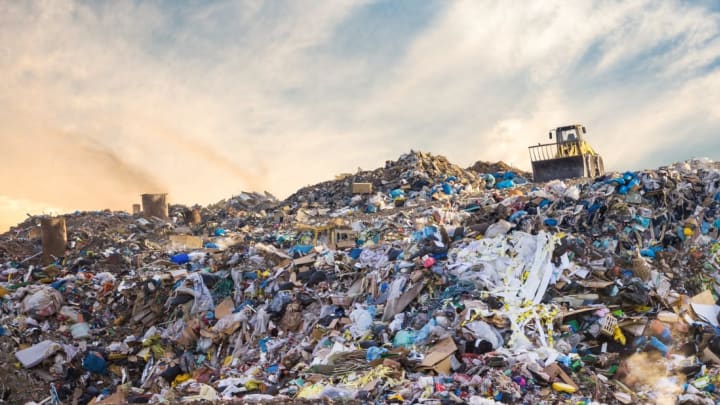I know I’m only about a decade late, but I recently, finally, watched the entire run of The Sopranos. Tony and his crew get their hands into plenty of different moneymaking schemes, but throughout the series one character or another (Tony, Richie Aprile, Ralph Cifaretto) is involved in solid waste management. What makes trash collection so attractive to mobsters?
The areas where criminal organizations tend to do steady business - drugs, stolen goods, gambling and protection rackets, for example - conform to the basic necessities of the wiseguy economy. They’re all easy to get into (you need significantly less startup capital to hijack a truck than to start the next Google) and exploit, and are highly profitable. The business of garbage collection satisfies those same needs, but has the added bonus of actually being legal. Mobsters can pull down serious profits from a legitimate, in-demand business, while also using it to launder dirty money from their other enterprises.
The mob really got into trash in the mid-20th century, when many cities stopped collecting commercial waste and left businesses to find private haulers.
Mobsters from New York to Chicago saw an opportunity and either started or took over (with money, intimidation or violence) hauling firms. Within a city, crews would divvy up routes, rig contract bids, and harass and extort non-mob haulers and customers in order to quash competition and keep their prices high.
Soon, gangsters, mostly from Italian- and Irish-American crime families, had monopolies on trash collection all over the Northeast and upper Midwest. The so-called “garbage mobsters” who ran these operations often falsified paperwork and tampered with waste scales, sometimes to skim profits from the business, and sometimes to hide dirty money in it. Crew bosses and members often got no-work, no-show “consulting” positions at the firms, which gave them a legit job to put on their tax return and explain their income.
Cleaning Up
Mobsters began to lose their grip on garbage in the last 20 years, as the industry became more corporatized and companies like Browning-Ferris Industries and Waste Management got big enough to step into mob-controlled territory and give them enough competition to drive them out of business. In New York, Mayor Rudy Giuliani and the city government finished the job that market forces started, conducting an undercover investigation, led by NYPD detective Rick Cowan, of the mob garbage cartel, and creating the Trade Waste Commission to regulate trash haulers.
In some places, though, the mob continues to hang on to its trash routes. Late last year, the New Jersey Commission of Investigation released a report saying that, despite law enforcement’s knowledge of the situation and years of effort to block their involvement, mobsters are still prominent in the trash business because state and local government fail to put up the resources, money and manpower needed to close loopholes, enforce laws and force them out.
That same report says things aren’t much better across the Delaware, and points out that alleged Philadelphia mob boss Joe Ligambi was on the payroll of a Philadelphia trash hauler from 2003 to 2010. He received $1,000 a week and health benefits for most of that time without, it seems, actually doing any work.
